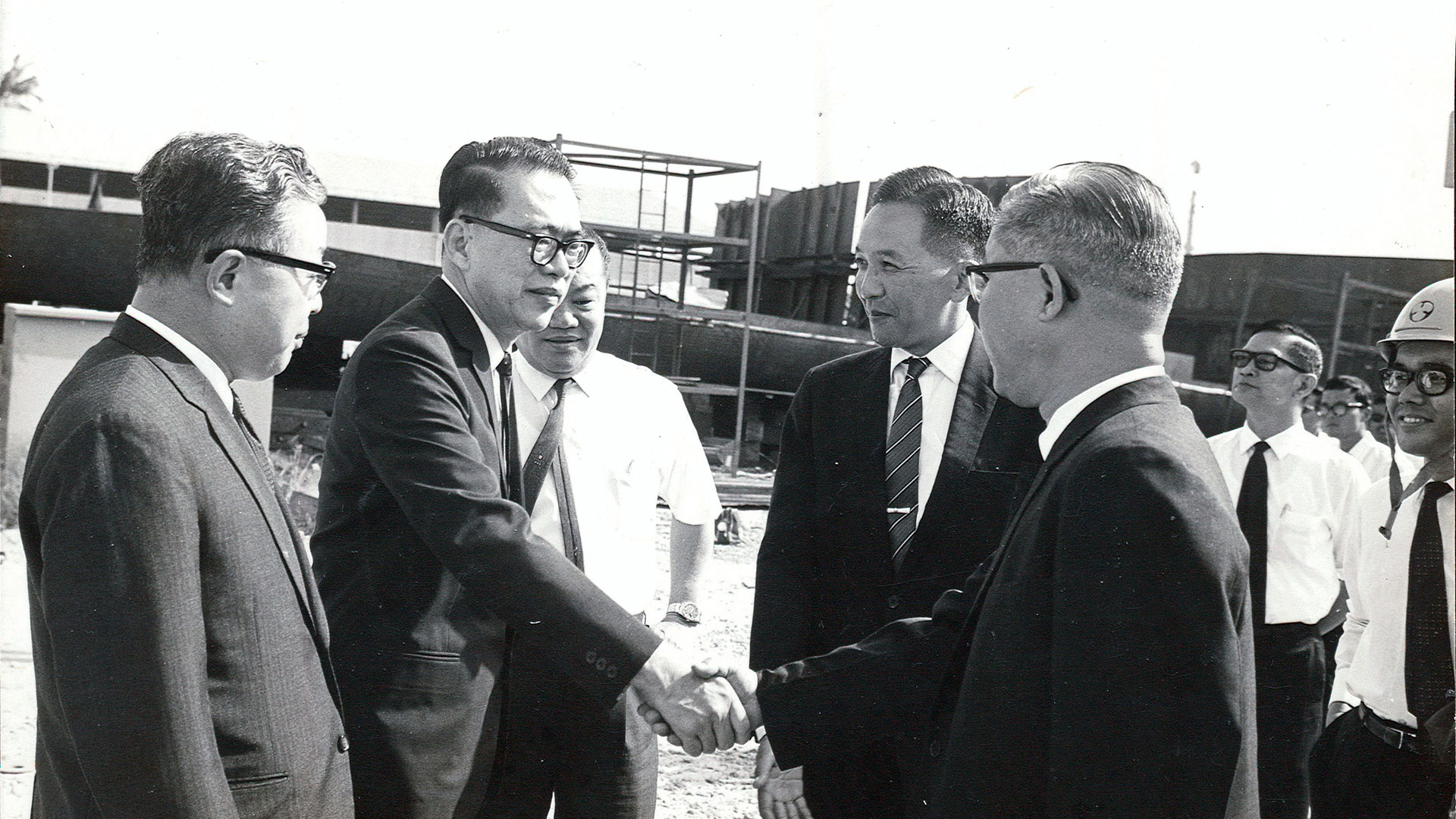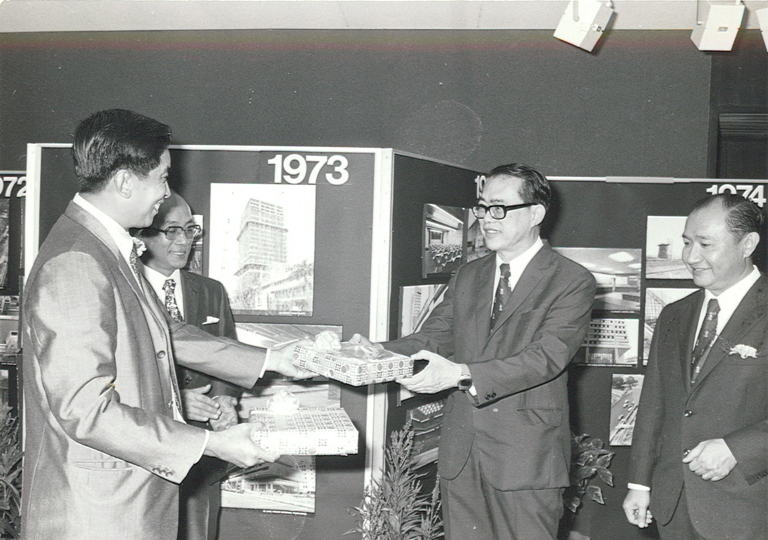Ketahui lebih lanjut

Mr Hon Sui Sen (centre) launching the commencement work for Jurong Shipyard’s new SGD 2 million dry dock in 1968.
Mr Hon Sui Sen was DBS’ first Chairman and President. He joined DBS from the Singapore Economic Development Board in 1968, expanding the bank’s services beyond development financing to a full-fledged financial institution.
In 1970, Mr Hon was persuaded by then-Prime Minister Lee Kuan Yew to become the Finance Minister of Singapore. He served as Finance Minister for 13 years until his passing on Oct 14, 1983.
The following is a tribute to Mr Hon penned in 1983 by then-DBS Chairman JY Pillay. Mr Pillay worked closely with Mr Hon during DBS’ pioneering years.
The contributions of Mr Hon Sui Sen to DBS Bank did not start or end with his two-year period of service in the late 1960s as our first Chairman and President.
Even before the formation of the Bank, in 1968, Mr Hon was active as Chairman of the Economic Development Board from 1961. In that capacity, he nurtured and financed many industrial ventures, thereby enabling DBS Bank to inherit from EDB an excellent portfolio of loans.
More than that, many members of the EDB staff, trained and guided by Mr Hon during their formative years in the pioneering days of the EDB, followed Mr Hon to the Bank. Together, Mr Hon and they established the foundations of a strong banking institution.
Whatever status, prosperity, and solidity DBS Bank enjoys today is due to the excellent work of those pioneers, many of whom, still youthful, remain with us to this day. Mr Hon is alas no more.
I played a very small part as an official in the Ministry of Finance in helping Mr Hon to set up the Bank. I had the privilege of serving as a member of the Executive Committee throughout his chairmanship, and beyond, except for a short break.
In 1979, when Mr Howe Yoon Chong left the Bank to join the Cabinet, Mr Hon asked me to take over as Chairman. Reluctant as I was to do so, because of other duties and awe at the responsibility, I could not refuse Mr Hon.

Farewell to Mr Hon Sui Sen.
It just was that way with all of us who had worked closely with Mr Hon.
We knew we could invariably turn to him for advice and support at critical periods of stress and trial. And he never let us down.
It is appropriate for staff who have been with us for only a decade or so to get a feel for the atmosphere and events of the early years which shaped the Bank’s destiny and led to its present eminence.
The Bank’s concern when it was founded was to provide development financing, principally for the manufacturing sector. Mr Hon soon realised that just providing development financing at fixed rates for long periods would not suffice. Commercial banks were moving in the same field. Moreover, clients of DBS were not satisfied with term loans. They wanted overdrafts, bills financing, short-term facilities, foreign currencies, hedging possibilities, funds management, investment banking, and other banking services.
Thanks to Mr Hon’s subtle diplomacy, DBS was able to make the transition into a fully-fledged commercial institution, with active operations in virtually every dimension of the banking industry.
It was during his period of leadership that the Bank also set up an insurance company, The Insurance Corporation of Singapore. A wholly-owned finance subsidiary was also founded.
Among the most prominent achievements of Mr Hon was the timely acquisition of land at choice sites for future development. These investments have now blossomed into the imposing DBS Building on Shenton Way, the sprawling Plaza Singapura complex at the entrance to the Istana, and the towering Raffles City complex. It is a tragedy that Mr Hon will not be around when we eventually commission the Raffles City complex in 1986. But we shall not forget him.
Still, I would like to re-emphasise that Mr Hon’s lasting contributions are not merely expressed in bricks and mortars, or dollars and cents of assets.
He was the best of all possible leaders, one who worked through his people and inspired them to live up to the high standards he set for himself.
Our greatest tributes to Mr Hon will be to continue those traditions despite the fact that he is no more.